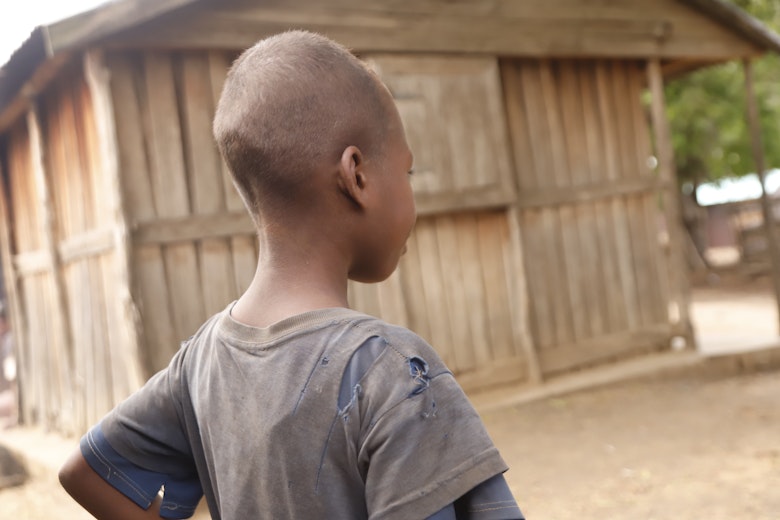From Mines to Milestones

Ramose* a 12-year-old boy from a small village in the south of Madagascar resides with his parents and siblings. The family faces the harsh reality of poverty and relies on mica mining as their primary source of income, earning approximately between 0.21 to 0.32 euros. To supplement this income, the family grows cassava and sweet potatoes. Ramose parents being the sole providers, struggle to ensure the family´s survival, managing to afford just one meal a day, dinner.
Ramose´s Story of Hope
The family lives in a single room-room structure and a kitchen constructed from bushes. Despite the simple constructed house, they have a wide playground, a water well, and a latrine.
Daily routine
Ramose wakes up at 4 am, attends to his hygiene and heads to school at around 7 or 8 am. On some days, he heads to the mine. Though he dislikes working at the mines, he has no other alternative.
The mica mines where Ramose works are hazardous sites with risks such as exposure to harmful dust and long working hours of physically demanding labour. The environment is dirty, and there is no clean water or proper sanitation. Despite the tough conditions in the mines, Ramose has never suffered any sickness or injury while working. Child labour is a common practice as children like Ramose are seen as a source of cheap labour. They often receive low or no wages at all.
Ramose´s Story of Hope
Vulnerability
Ramose’s poor background renders him vulnerable to exploitation. The harsh conditions at home force him into child labour to boost his family´s income. The poverty cycle and hard labour leaves little room for him to explore childhood. Reflecting on his situation, he expressed, ¨That kind of life is not the one I want but we are poor.¨
In November 2023, Ramose was identified by FAFAFI, the implementing partner for the JOFA ACTE project, and he, along with his family, began receiving support. As part of this assistance, the child rights club that Ramose is involved with was provided with 2 footballs and 25 football jerseys. In addition to that, the family has been supported with positive parenting skills training, educational opportunities at the child rights club for Ramose, and upcoming Income-Generating Activities (IGA) support. Further plans include providing them with speakers and dignity kits, which consist of backpacks, pants, sandals, caps, pencil cases, pens, t-shirts, and more.
The JOFA ACTE project aims to support at least 750 children by reducing child labour in Madagascar by 2025, in line with Sustainable Development Goal 8.7. To date, the project has supported 737 children.
JOFA ACTE project seeks to enhance the protection and awareness of children, families, and communities about the risks and alternatives to child labour, strengthen local and national systems to care for and provide alternatives for affected children, and support coordinated actions by state and non-state actors to prevent and reduce child labor, ensuring effectiveness, visibility, and transparency.
In February 2024, Ramose joined a child rights club where he gets support through mentorship. In the club, he has met other children, made new friends, and had opportunities to share and listen to each other’s experiences. He will be supported with school supplies including a school bag, pens, JOFA ACTE t-shirts, pants, caps, pencil cases, and sandals.
Hopeful of a bright future
Ramose is optimistic about a brighter future. With the support of the JOFA ACTE project, he hopes to complete his studies, become a teacher, and build his parents a house.






